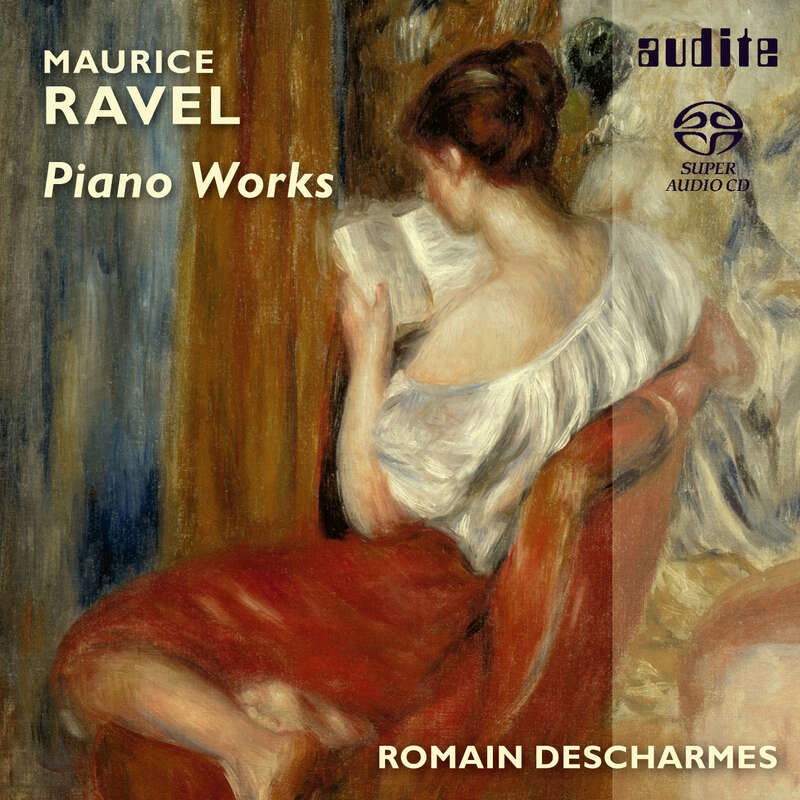« ... The account was all the more stunning for coming after performances characterized as much by subtlety as by force. Mr. Descharmes’s Ravel, in the Sonatine and “Gaspard de la Nuit,” was fluid and eloquent. Perhaps more surprising for a Frenchman, his Brahms, in the F minor Sonata, was burly and declamatory, though it remained lithe and proved melting in lyrical moments. »
(New York Times).
"....Genuinely mind-blowing, a polished, bounding, roaring performance........Romain Descharmes deserves a triumphant reception....." (Ouest-France)
Born in 1980, Romain Descharmes was awarded First Prize in the Dublin International Piano Competition in 2006, leading him to perform recitals on such prestigious stages as Carnegie Hall in New York, Wigmore Hall in London, National Concert Hall in Dublin, Minato Mirai Hall in Yokohama, Tsuda Hall and Hakuju Hall in Tokyo, and Salle Cortot in Paris. He has also been awarded prizes at other international competitions (Vlado Perlemuter, Shanghai, Hamamatsu, Alessandro Casagrande), and has received the support of the Yamaha and Natexis-Banque Populaire foundations. In 2004 he became an affiliate of the Charles Cros Academy.
He studied at the Conservatoire National Superieur de Musique in Paris, where he won four first prizes (piano, chamber music, piano accompaniment and vocal accompaniment) while studying with Jacques Rouvier, Christian Ivaldi, Jean Koerner and Anne Grappotte. Later, he continued his studies first with Jacques Rouvier and then Bruno Rigutto, during which time he was awarded a scholarship by the Meyer Foundation for cultural and artistic development, and made a recording of works by early twentieth century composers. For this project he received the advice of Pierre Boulez. He has also taken masterclasses with Dimitri Bashkirov, Idil Biret, John O'Conor and Oxana Yablonskaya.
Romain Descharmes frequently gives recitals in France (Roque d'Anthéron, Piano aux Jacobins, Rencontres Internationales Frederic Chopin, Serres d'Auteuil, Nancyphonies, Ars Terra, Aix-en-Provence, Saint Jean-de-Luz, Estivales de Musique au Coeur du Médoc, Agora Festival) and abroad (Festival Arties in India, Beirut, Leipzig, Naples, Lisbon Opera, and Festival Cervantino in Mexico). He has also participated in numerous broadcasts for television and radio (France-Musiques, Mezzo, NHK Japan).
He has appeared in concert with orchestras in USA, England, Ireland, France, Japan and China, most notably with the Midland Symphony Orchestra, the National Symphony Orchestra of Ireland, l'Orchestre de la Garde Républicaine, le Nouvel Ensemble Instrumental du Conservatoire de Paris, l'Orchestra del Lazio and the Shanghai Philharmonic Orchestra.
He is also much sought-after as a chamber musician. He is renowned for his attentive, sensitive playing and wide repertoire, which ranges from sonatas to larger ensemble pieces, as well as lieder, of which he is particularly fond. He has collaborated with such artists as Roland Daugareil, Henri Demarquette, Laurent Korcia, Sarah Nemtanu, the Court-Circuit Ensemble, the Ebène Quartet, the Satie Quartet and the Berliner Philarmoniker Quintette.
His first CD recording was of Brahms pieces for Claudio Records in London.









